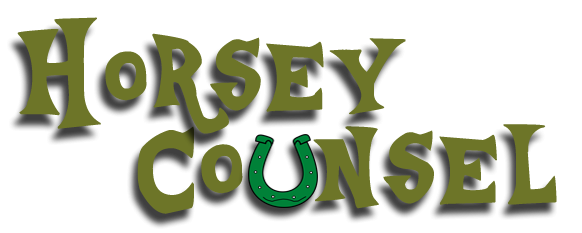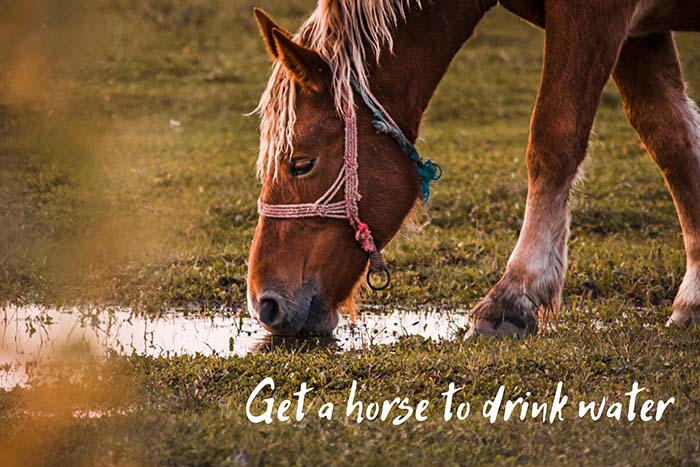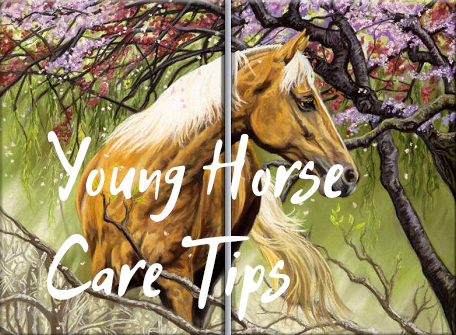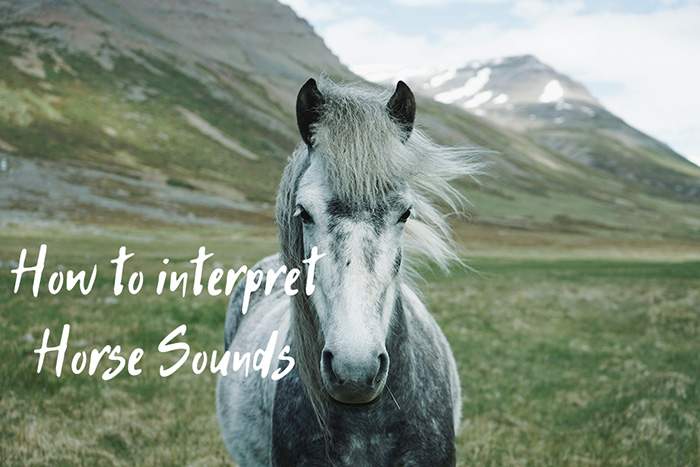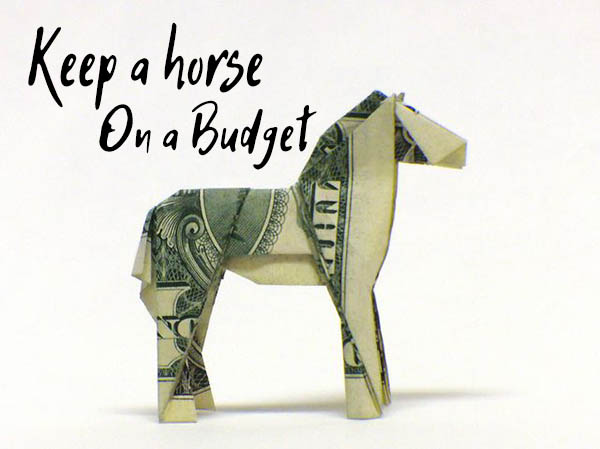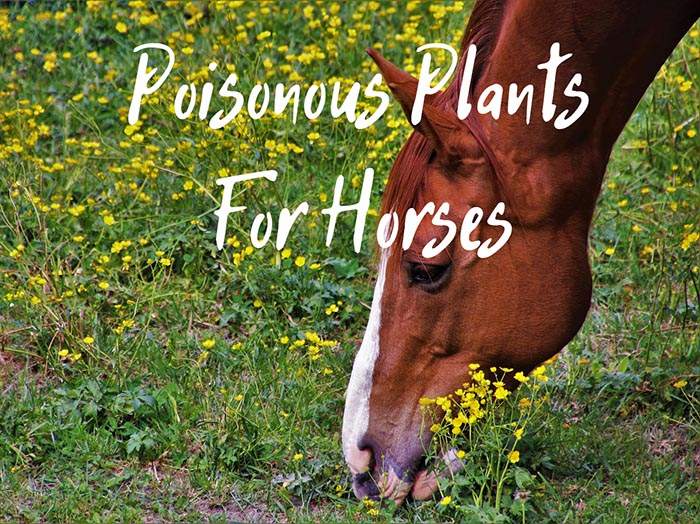What Kind of Food Can Horses Eat & What Food Is Bad for Them?
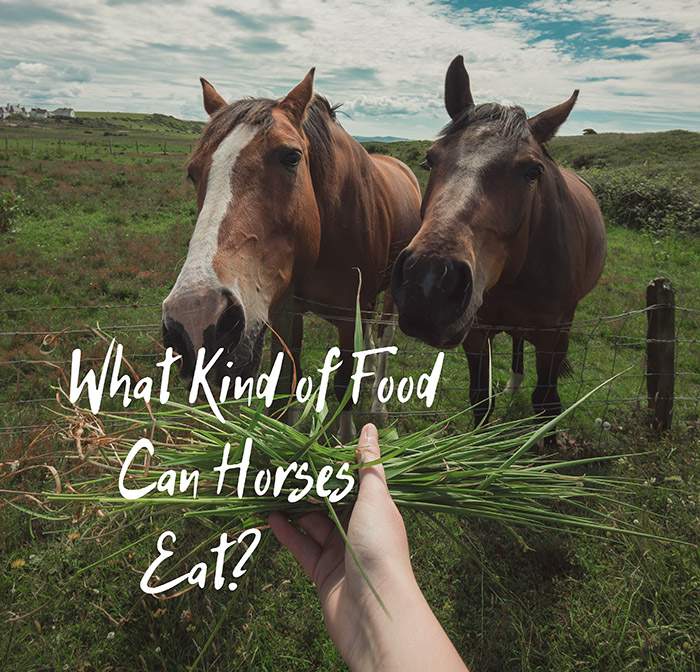
Feeding a horse is not the most complex or difficult thing in the world. After all, a horse’s diet mostly consists of grass and hay, with the occasional treats thrown in from time to time. However, what is important is to keep in mind that not all types of food are beneficial for horses. Indeed, some of them might actually do more harm than good.
Generally speaking, a horse will be able to eat pretty much any fruit and vegetable safely, as long as they are cut into little pieces in order to prevent choking. You can safely feed your horse carrots and apples, as well as pumpkin, raisins, and even good old sugar cubes. Just don’t give it too many snacks and you’ll be fine.
Delving deeper into the subject, I wanted to answer some of the most common questions regarding horse food and what kind of food can horses eat. I think it’s important to know the benefits of each food type, as well as the effects that it can have on the horse’s health, mood, and behavior. First off, though, let’s answer one of the most popular questions:
How many treats should a horse eat?
Horses rarely feel full, and that’s mainly because they have evolved to eat constantly, in short amounts. They will nibble on grass for an entire day if left to their own devices. You could say it’s their main pastime when they’re not working. They’ll always look for something to nibble on the ground.
Their digestive system is made to be in constant motion, which is why feeding your horse constantly is incredibly important. They need constant food in order for them to maintain a healthy bone structure, strong muscles, and a good mood.
There’s nothing wrong with feeding your horse treats from time to time, but keeping in mind that they’ll always want more, you should limit the number of fruits and vegetables that you provide. After all, you wouldn’t want your horse to get a stomach ace, right? Two pieces of each fruit or vegetable will be more than enough per feeding session. All of these horse treats will add extra calories. Probably not enough to make your horse fat if used in moderation, but they can definitely upset the delicate balance in the equine’s stomach, which could lead to serious complications down the road.
Now that I’ve given you proper warnings and guidance, let’s have a look at some popular horse snacks and figure out what are their benefits and downsides.
Can horses eat celery?
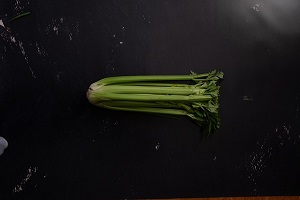
Celery is a great source of fiber, and this makes it a very good treat for horses. Yes, horses can eat celery, and they can take full advantage of its cornucopia of vitamins such as Vitamins B2, C, B6, A, and K. Celery also includes a fair amount of potassium and manganese.
You can feed your horse the celery leaves as well as the celery root itself. Make sure to cut the treat down into small pieces, as some horses will sometimes swallow their snacks whole without chewing them first.
Can you feed pumpkins to horses?

Pumpkin can make for an outstanding sweet snack for your equine friend. While not particularly tasty for some of us in its raw form, horses love the taste of pumpkin and will gladly have a few bites if given the opportunity. Pumpkin is rich in Vitamin A, and it’s basically 90% water.
In order to feed the pumpkin safely to your horse, you’ll have to take the inner “flesh” out, as well as the seeds. Make sure to separate the actual pumpkin from the seeds, and cut it into small chunks that the horse can nibble on.
Can horses eat watermelon?
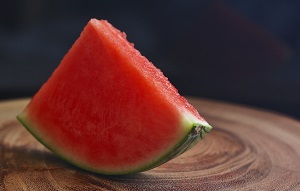
Horses can safely eat watermelon, but keep in mind that not all of them might have a taste for it. Horses can eat the sweet fleshy part, as well as the rind, provided that it’s cut into little pieces. If you’re worried about your horse’s sugar intake, I should tell you that watermelon is not likely to pose any problems in this regard.
It’s true that a sliced-up cup of watermelon includes 1 gram of fiber and 9 grams of sugar, but carrots contain about six grams, and even the grass that horses nibble on daily has some sugar in its composition as well. Sugar occurs naturally in many plants and vegetables in the world, and your horse’s digestive system is used to a certain amount of it.
The watermelon rind isn’t toxic for horses, and neither are the seeds. However, it’s always a good idea to wash the outer part of the watermelon before feeding it to your horse, as it can contain traces of pesticide. As long as you feed watermelon to your horse in moderate quantities, everything should be fine.
Can horses eat cantaloupe?
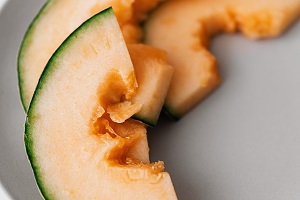
If your horse has a taste for cantaloupe, you can let him have a few bites from time to time without worrying about any side effects. Keep in mind that I’m talking about the flesh of the cantaloupe exclusively, as the rind can cause digestive issues due to the presence of mold.
Cantaloupe rind is not toxic to horses in it of itself, but the mold that sometimes forms on its surface can definitely do some damage. Moreover, the rind doesn’t have any nutritional value, and it probably doesn’t taste that good anyway.
The flesh of the cantaloupe is an entirely different story. It contains Vitamin C and B, as well as various antioxidants, beta carotene, potassium, and folic acid. As with watermelon, there’s quite a bit of sugar in cantaloupe, which is why moderation is key.
What about carrots and apples?
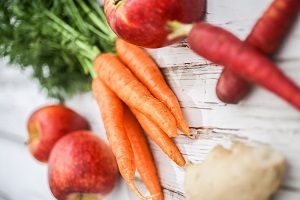
I had to touch on this pair of snacks briefly, as they are probably the most popular horse treats of them all. Needless to say, you can feed your horse apples and carrots, as both of them are tasty and provide a few health benefits.
While carrots pose little to no health risks if they’re fed to your horse in small chunks and in moderation, some people are worried about apple stems and apple seeds. It’s true that apple seeds contain small amounts of hydrogen cyanide, which has the potential to kill humans and animals if ingested in high enough proportions.
For a human, it would take roughly 270 seeds for a lethal dose. For a horse, the number of ingested seeds would have to be considerably higher. Therefore, half an apple per day isn’t going to pose a health risk for any equine. If you want to keep things simple, though, just cut the apple in small chunks while avoiding any seeds before feeding it to your horse.
Should you feed bananas to your horse?

I think it’s safe to say that all horses love eating bananas, and they’ll definitely eat as many as they can if left to their own devices. It’s not hard to understand why: bananas are soft and sweet, which means they’re very easy to eat and very tasty. It’s safe to feed your horse bananas, just as long as you don’t give it more than two bananas per week.
When it comes to the peel, some horses might enjoy eating it and some might not. If your horse does like to eat the banana peel, make sure to remove any stickers from it, and also check if the banana is organic.
You can feed your horse a quarter of a banana at a time, or you can chop it down into little pieces. You can also mix it with bran mash, or freeze it up in order to make it crunchy and more appealing to your horse.
Can horses eat oranges?

It’s not uncommon for horses to enjoy a slice of orange from time to time, and the same can be said about grapefruit too. Moreover, orange peel can offer some incredible benefits if consumed in moderation by equines, just make sure to wash the peel beforehand.
As long as your horse isn’t on any medication and doesn’t have any insulin-related conditions, it’s definitely safe for it to eat oranges. Citrus fruit is rich in Vitamin C, and your horse could definitely benefit from it.
Can horses eat cucumber?
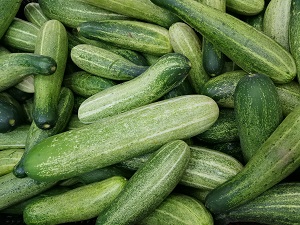
Cucumber is safe for horses to eat, as long as you don’t exceed five ounces per day. There’s a potential risk that cucumber would cause some excess gas buildup in the horse’s stomach, but only if the ingested quantity is relatively high, and if the horse has some conditions beforehand.
If you want to feed your horse cucumber, make sure to wash it thoroughly beforehand and chop it into medium pieces so that the horse might chew on it. Cucumber has low calories and low sugar levels, which makes it a great treat for overweight horses.
Can horses eat tomatoes?

We’re reaching a part of the list that includes foods you should NOT feed your horse. The tomato is one of them. Feeding your horse tomatoes can result in decreased intestinal motility, decreased saliva production, and even constipation or diarrhea. That’s because tomatoes include Hyoscyamine, as well as atropine in their leafy green parts, which can cause colic.
While tomatoes include their fair share of vitamins and whatnot, they are definitely not safe for horses to eat, and they should be avoided at all times.
What other foods are NOT safe for horses to eat?

- Onions and garlic – Onions not safe for horses to eat because they include N-propyl disulfide, which can cause anemia. Other similar plants include scallions, chives, and leeks, and these should also be avoided as much as possible. Garlic, on the other hand, is often used as a supplement for horses, but always in moderation and only in certain cases.
- Potatoes – While potatoes are not inherently bad or toxic for horses to eat, they should still be avoided as a snack because of two reasons: if the potato is green or rotten, it can cause toxicosis in all animals, horses included. Secondly, if the horse swallows the potato whole, there’s a risk of it getting stuck in the windpipe. That’s why I always recommend chopping up these snacks into smaller pieces.
- Chocolate – Chocolate is toxic for horses, just like it is for cats and dogs due to the presence of theobromine. It also has a high cocoa content, which can actually kill a horse if ingested in large quantities. Moreover, if a horse eats even a bit of chocolate, it’s likely to test positive for a drug test, so keep that in mind if your horse is about to enter any competitions.
- Bread – Bread might sound fine at first, but once you realize that it can become a doughy mass in the horse’s stomach, you’ll quickly reconsider feeding it to your horse. That mass can easily create a blockage in the horse’s gastrointestinal system, so just avoid feeding your horse any baked goods altogether.
- Dairy – Dairy, yogurt included, is not safe for horses to eat because equines cannot digest lactose. If you feed your horse yogurt, it’ll most likely get some form of diarrhea, so just avoid giving it any dairy products to be on the safe side.
- Meat – I think this is a no-brainer, but I’ll mention it nonetheless: don’t ever feed your horse meat. Apart from the fact that horses are herbivores and would always rather eat plants, their digestive system is in no way designed to break down and process meat of any kind. There have been recorded cases of horses eating other animals (mostly birds) in the wild. However, this is never the norm.
Conclusion.
A horse’s diet can include many plants as well as fruits and vegetables. However, we as horse owners need to be aware of any conditions or sensitivities that our horses might have, as well as allergies. Furthermore, since horses don’t have the ability to throw up if they eat something that’s not good for them, feeding them the right food at all times becomes even more important.
A horse’s stomach includes a special bacterial ecosystem that can be disturbed fairly easily. That’s why I always recommend starting in very small portions whenever you want to introduce new food to your horse’s diet. Afterward, you can keep track of what works and what doesn’t.
If you just bought an older horse, try to find its medical history or ask its previous owner what kind of treats he was used to before. Knowing as much as possible about your horse will allow you to make the right choices when it comes to its food and general lifestyle.
